Five of the best alternative camping sites
From an open-air bed in Devon to a peaceful retreat by the coast in Wales.

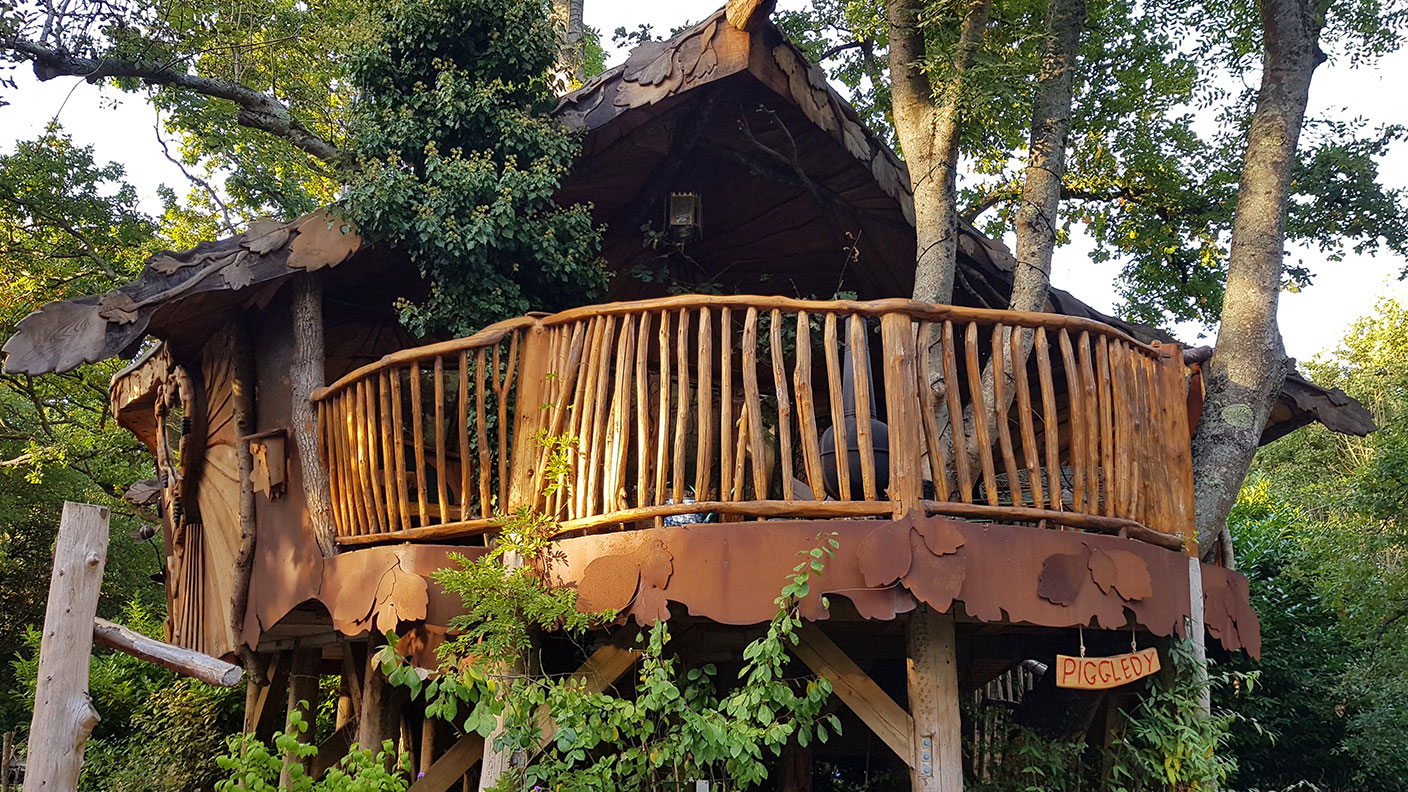
Get the latest financial news, insights and expert analysis from our award-winning MoneyWeek team, to help you understand what really matters when it comes to your finances.
You are now subscribed
Your newsletter sign-up was successful
Want to add more newsletters?

Twice daily
MoneyWeek
Get the latest financial news, insights and expert analysis from our award-winning MoneyWeek team, to help you understand what really matters when it comes to your finances.

Four times a week
Look After My Bills
Sign up to our free money-saving newsletter, filled with the latest news and expert advice to help you find the best tips and deals for managing your bills. Start saving today!
The Heath Robinson of glamping
Tim Johnson, owner of Blackberry Wood in East Sussex, “is to glamping what Heath Robinson was to industrial design”, says The Sunday Times. The former’s greatest creation so far is the Piggledy Tree House (above), a £200,000 fantasy in a wild wood at the foot of the South Downs National Park, with two double beds, a fitted kitchen and a terrace overlooking the site. “If that option is too trippy,” book the Helicopter, a converted 1965 Wessex search and rescue chopper. It can accommodate up to four people and has a fridge, gas hob and heating. You can also stay in the 1964 Routemaster double-decker “Holiday Bus”, which has been fitted with a downstairs kitchen. Other quirky options include a fire engine named Angus and the Scandi-style “Curvy Cabin”.
£245 for Piggledy, blackberrywood.com
A bed under the stars in Devon
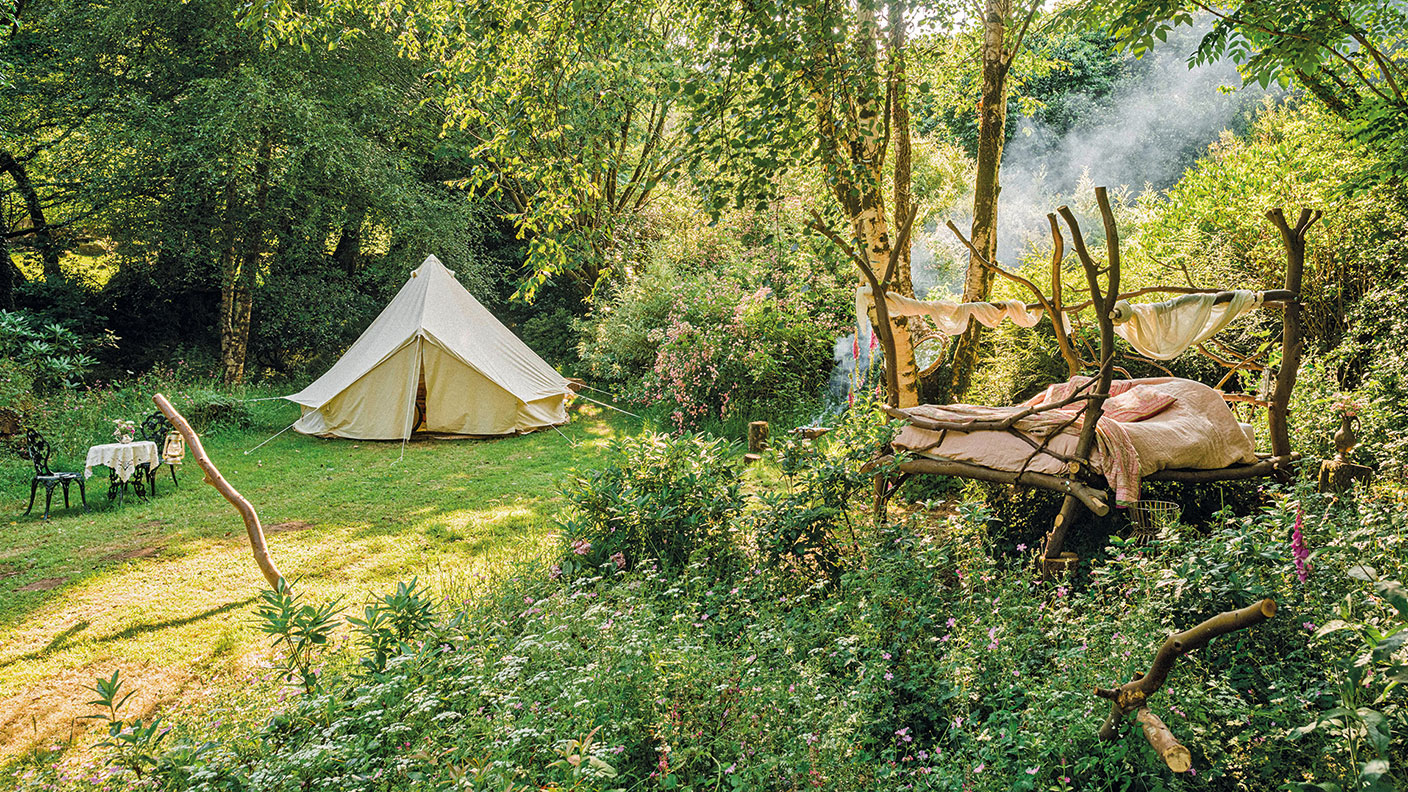
With demand soaring for camping holidays and festivals called off this year due to coronavirus, tipis and bell tents across the land are being repurposed for pop-up glamping sites, says Dixe Wills in The Guardian. Southcombe Barn, just outside Widecombe-in-the-Moor in the southeast of Dartmoor National Park, Devon, is one such spot. In the grounds of the house that Canopy & Stars’s founder Tom Dixon shares with his wife, the boughs of a felled eucalyptus have been fashioned into the frame of an alfresco bed. For this summer only, the Midsummer Meadow Bed “is open to guests keen to dispense with canvas and doze off in the open air”. A nearby bell tent stands ready as an emergency back-up with a double bed, sofa and a bottle of wine. The bathroom is a converted woodworking shop about a minute’s walk away, while in the former barn there is a kettle and, unexpectedly, an art gallery.
MoneyWeek
Subscribe to MoneyWeek today and get your first six magazine issues absolutely FREE

Sign up to Money Morning
Don't miss the latest investment and personal finances news, market analysis, plus money-saving tips with our free twice-daily newsletter
Don't miss the latest investment and personal finances news, market analysis, plus money-saving tips with our free twice-daily newsletter
£145 a night B&B, canopyandstars.co.uk
Midland glamping in wooden wigwams
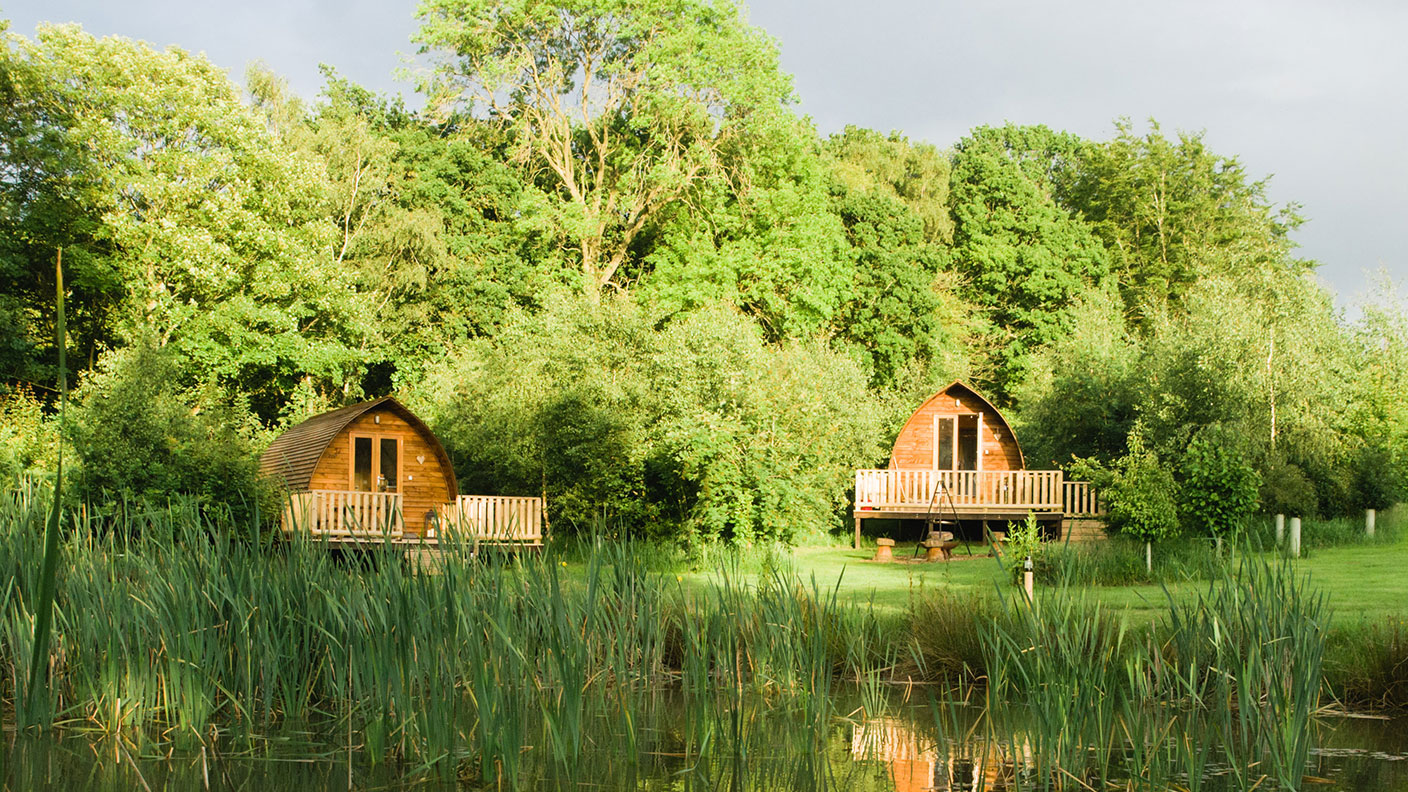
“More like timber pods than traditional wigwams – and all the warmer for it – wigwam cabins have tiny kitchenettes, modern bathrooms and electricity,” says Natalie Paris in The Daily Telegraph. They are a testament to the growing popularity of glamping and they can now be found at more than 80 sites across Britain. Practical rather than pretty, they often come with a dining table that transforms into a sleeping area. That means they are well-suited for people happy to do without fuss or frills. Charnwood Forest, near Leicester in the East Midlands, is “a particularly scenic spot, with fire pits, a wildlife hide and a pond fringed with reeds”.
From £160 for two nights, wigwamholidays.com/charnwood-forest
A haven of peace on the coast near Abersoch
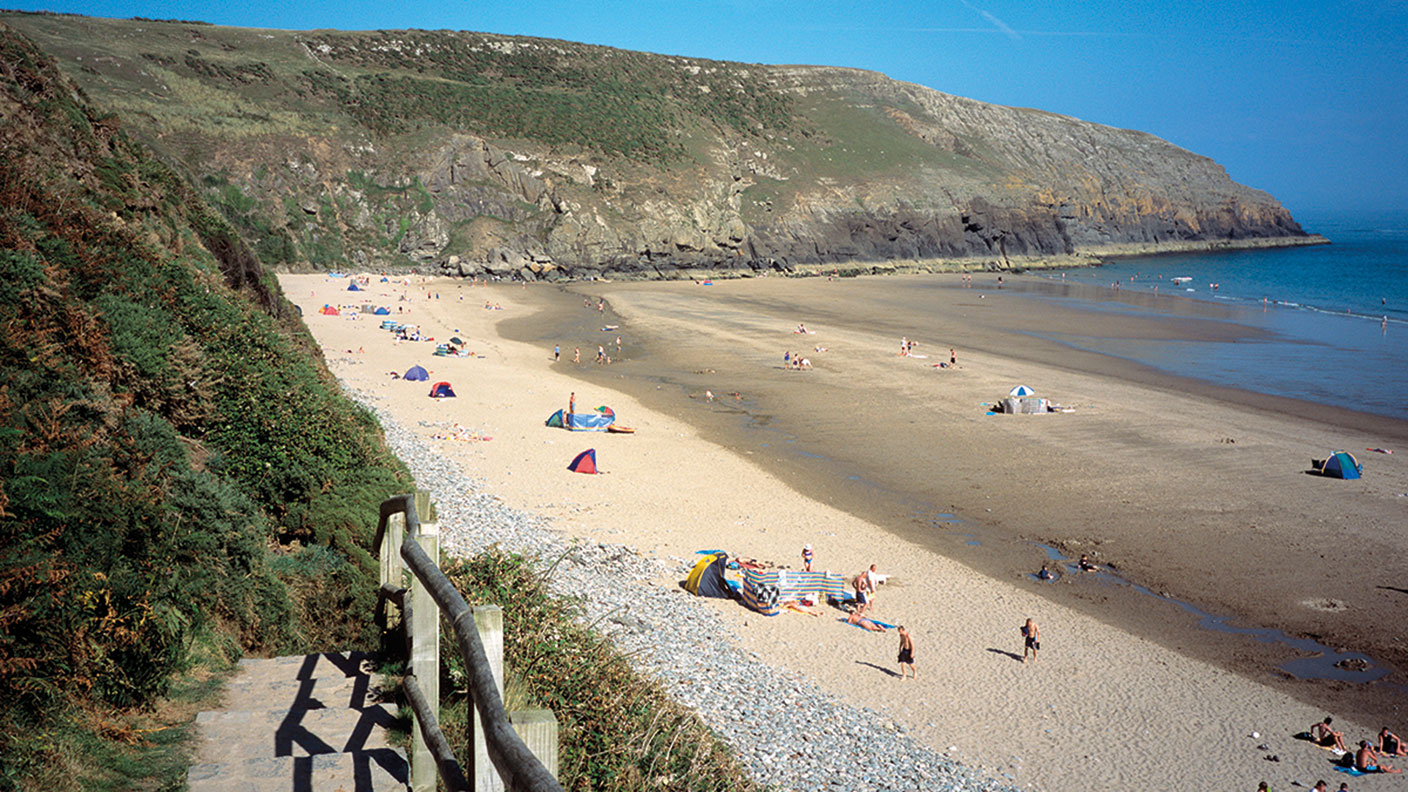
“Coastal campsites often have quirks of their own – the best ones are smaller, slightly off the beaten track and offer limited facilities, to enable you to fully enjoy the expanse of wild space on offer,” says Jacob Little in Spectator Life. Nant Y Big, in northwest Wales, is a great example. Although lockdown restrictions mean campsites in this part of the world will open slightly later than in England (hopefully from 25 July), it will be worth the wait. Perched above Porth Ceiriad beach on the Llyn Peninsula near Abersoch, there’s lots of space here, “so the camping is low-density and the isolation is intoxicating”. The campsite is a haven of peace and quiet, so there’s no music allowed and no noise after 11pm, and it is only a 15-minute walk to the beautiful sands at the bottom of the cliffs.
£10 per adult, nantybig.co.uk
Awaken to the sound of lions roaring in Doncaster

Yorkshire Wildlife Park in Doncaster has launched its “Roar and Snore” camping area, allowing families to pitch their tents just outside the entrance to the park, says Kara Godfrey in The Sun. That means lucky campers will be able to wake to the sound of lions roaring in the morning. You will need to bring your own tent, but food facilities at the site include a pizzeria and a breakfast wagon. There are also washrooms and showers available. Tickets to the park are discounted for campers and “if you fancy some alone time with the animals, you can even book an out-of-hours safari tour, taking place an hour before or after the park opens”.
Camping pitches are available for up to six people per pitch. From £50, £40 for additional nights. See yorkshirewildlifepark.com
Get the latest financial news, insights and expert analysis from our award-winning MoneyWeek team, to help you understand what really matters when it comes to your finances.

-
 Should you buy an active ETF?
Should you buy an active ETF?ETFs are often mischaracterised as passive products, but they can be a convenient way to add active management to your portfolio
-
 Power up your pension before 5 April – easy ways to save before the tax year end
Power up your pension before 5 April – easy ways to save before the tax year endWith the end of the tax year looming, pension savers currently have a window to review and maximise what’s going into their retirement funds – we look at how
-
 Adventures in Saudi Arabia
Adventures in Saudi ArabiaTravel The kingdom of Saudi Arabia in the Middle East is rich in undiscovered natural beauty. Get there before everybody else does, says Merryn Somerset Webb
-
 Review: Constance Moofushi and Halaveli – respite in the Maldives
Review: Constance Moofushi and Halaveli – respite in the MaldivesTravel The Constance resorts of Moofushi and Halaveli on two idyllic islands in the Maldives offer two wonderful ways to unwind
-
 Affordable Art Fair: The art fair for beginners
Affordable Art Fair: The art fair for beginnersChris Carter talks to the Affordable Art Fair’s Hugo Barclay about how to start collecting art, the dos and don’ts, and more
-
 Review: Gundari, a luxury hotel in the Greek island of Folegandros
Review: Gundari, a luxury hotel in the Greek island of FolegandrosNicole García Mérida stayed at Gundari, a luxurious hotel on Folegandros, one of the lesser-known islands in the southern Cyclades in Greece
-
 Fine-art market sees buyers return
Fine-art market sees buyers returnWealthy bidders returned to the fine-art market last summer, amid rising demand from younger buyers. What does this mean for 2026?
-
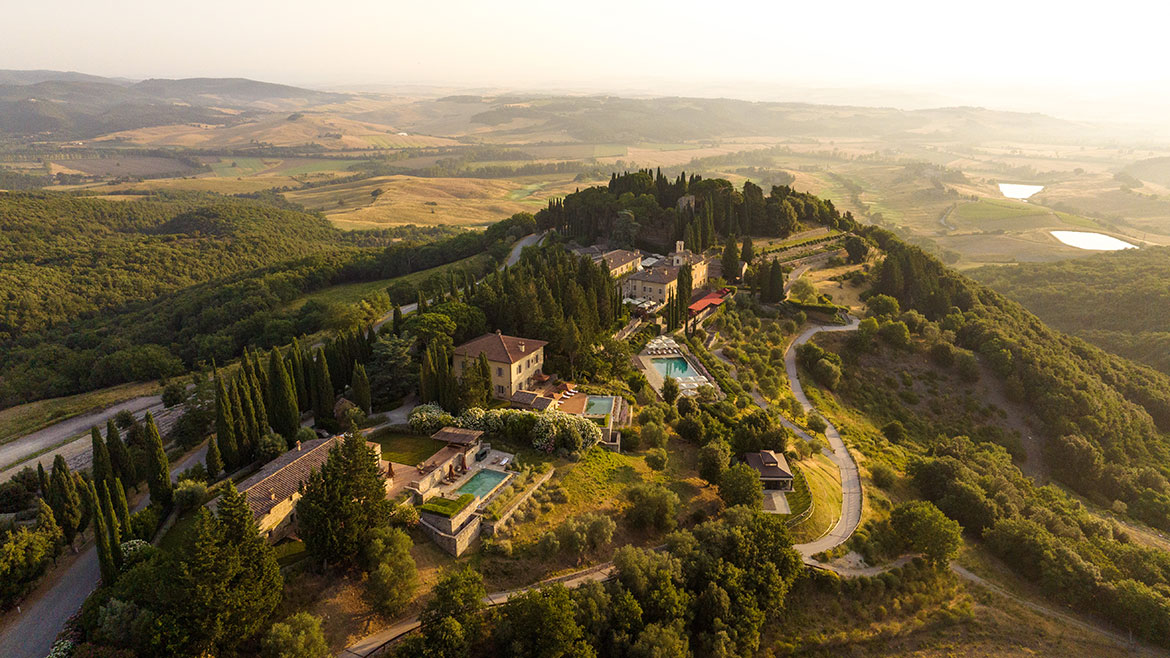 Review: Castiglion del Bosco, A Rosewood Hotel – a Tuscan rural idyll
Review: Castiglion del Bosco, A Rosewood Hotel – a Tuscan rural idyllTravel Play golf, drink exquisite wine and eat good food at Castiglion del Bosco, A Rosewood Hotel, all within the stunning Val d’Orcia National Park in Tuscany
-
 Review: A cultural tour of North India
Review: A cultural tour of North IndiaTravel Jessica Sheldon explores North India's food and art scene from three luxurious Leela Palace hotels in New Delhi, Jaipur and Udaipur
-
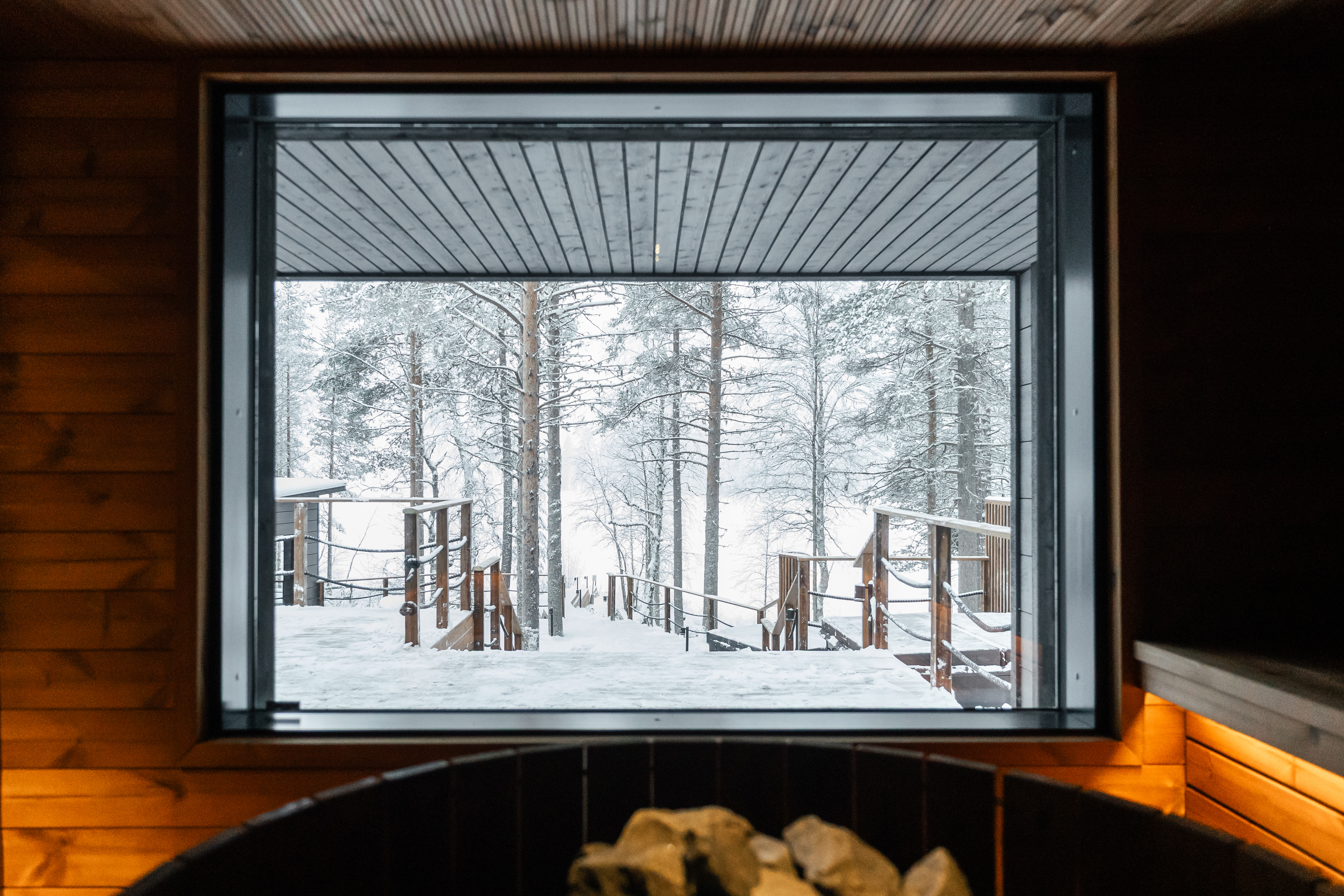 The best luxury saunas, spas and icy plunges
The best luxury saunas, spas and icy plungesRestore your mind and body with luxury fire and ice experiences, from warming saunas to icy plunges